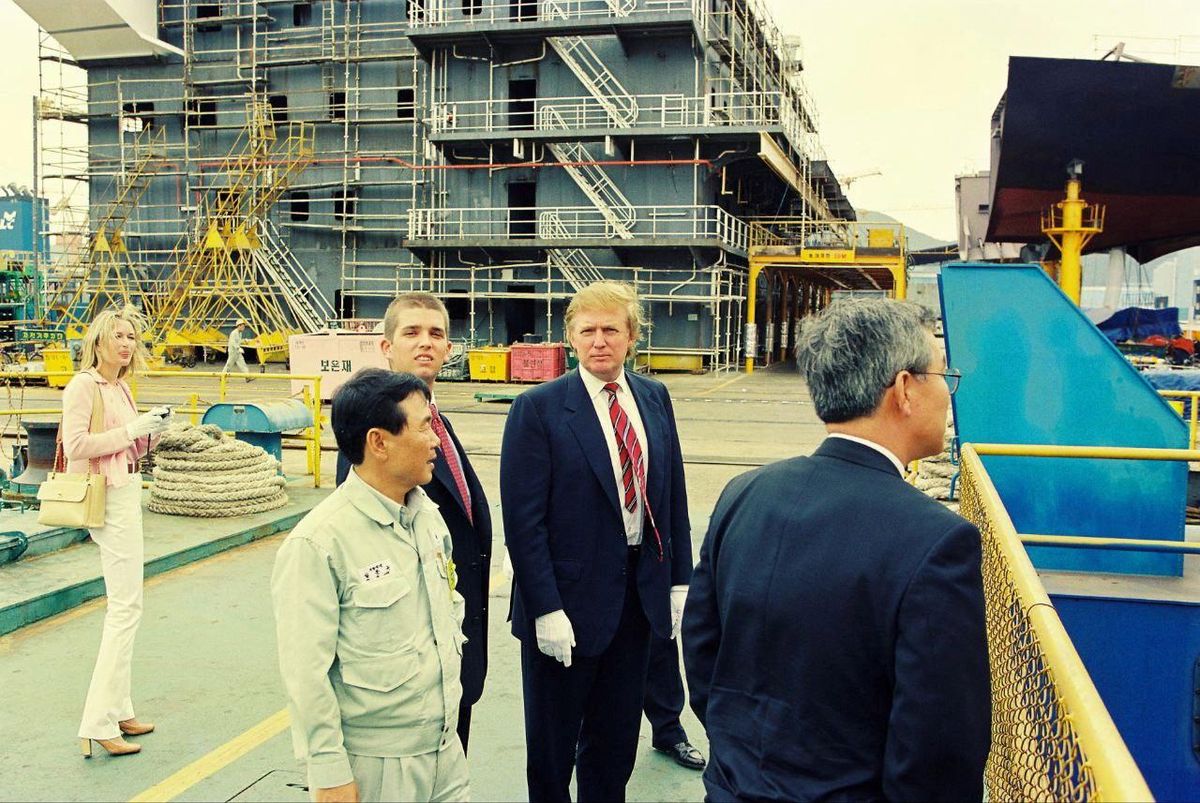Korea’s Strategic Investment in U.S. Shipbuilding
Recently, Korea has announced a substantial plan to invest $150 billion in the American shipbuilding sector—a strategic move anticipated to generate significant impacts not just on shipbuilding itself, but also across global logistics and transport industries.
Details of the $150 Billion Fund
The initiative, dubbed the “Make American Shipbuilding Great Again” (MASGA) project, was heralded as a cornerstone of newly re-established economic dealings with the United States. This investment is projected to play a crucial role in easing trade tensions and fostering better relationships through mutual advancements in shipbuilding.
The Allure of Investment
In an evolving trade dialog, Korean officials emphasized how this $150 billion fund becomes pivotal for both securing tariff negotiations and revitalizing a fading industry. This proposal comes at a significant time; just before the August 1 deadline, it was revealed that such measures could stave off proposed high tariffs on Korean imports, which were set at 25% prior to these negotiations.
Key Components of the MASGA Project
- Construction of New Shipyards: New facilities to be established across the U.S.
- Trainingsprogramma's: Initiatives aimed at enhancing the skills of American shipyard workers.
- Supply Chain Rebuilding: Plans to refresh and revitalize supply chains crucial to shipbuilding and maintenance.
- Maintenance, Repair, and Overhaul (MRO): Efforts to improve the upkeep standards of U.S. vessels.
Cooperation Between Korea and the United States
The proposal has garnered positive sentiments from industry leaders across both nations. Leaders in the Korean shipbuilding sector expect significant benefits, with statements reflecting anticipation for increased collaborations that will serve both markets. One noteworthy commentary by the Korea Offshore & Shipbuilding Association highlighted the deal’s prospects for recapturing lost glory in U.S. shipbuilding.
Reactions from U.S. Officials
In tandem, U.S. officials such as Commerce Secretary Howard Lutnick lauded the negotiation outcomes, seeing the MASGA initiative as a suitable response to the growing demand for shipbuilding partnerships. In this regard, easing restrictions on foreign investments appears imminent, specifically concerning the accessibility of U.S. shipbuilding markets to external parties.
Investment Implications
The significance of this investment stretches beyond just the construction of ships. As companies like Hanwha prepare to join the MASGA initiative, the ripple effects are expected to touch logistical frameworks that underpin trade routes and supply chains. Global logistics companies may find themselves needing to adapt quickly to these industry shifts, given the entity of resources pouring into revitalization efforts.
Moreover, the anticipated increase in ship manufacturing is sure to create new requirements for freight solutions, thereby inviting logistics providers such as GetTransport.com to step up and cater to evolving transport needs. GetTransport.com specializes in facilitating affordable cargo transportation solutions on a global scale, which is beneficial as industries ramp up production and demand for shipping services surges.
Uncertainties and Future Outlook
Despite the promising outlook for the shipbuilding sector, uncertainty clouds how Korea plans to amass the projected $150 billion. Currently, further details on financial logistics remain scarce, and the U.S. government’s cautious stance hints at a more complex interplay of factors that will unfold as negotiations progress.
Potential Effects on Global Logistics
The implications of this investment go beyond mere shipbuilding; it could potentially reshape global shipping routes and logistics. If American shipbuilding witnesses a renaissance, the resulting increase in cargo capacity means a significant uptick in shipping transactions worldwide. Companies engaged in logistics and transportation must keep a finger on the pulse of these developments to seize opportunities or mitigate disruptions.
Conclusie
In summary, Korea’s planned investment to rejuvenate the American shipbuilding industry presents both challenges and opportunities, particularly within the logistics landscape. The established partnerships are set to redefine shipping capabilities, potentially making waves that impact global trade. GetTransport.com stands ready to assist businesses looking to navigate through these changes, offering various logistics solutions—from cargo deliveries and office relocations to the transportation of larger items like vehicles and furniture. The growing synergy between shipbuilding advances and logistical developments underscores the platform’s role in providing efficiency and cost-effectiveness. For anyone considering upcoming freight needs, remember: GetTransport.com represents a reliable ally, ensuring a smooth ride through the waves of change. Book your Ride at GetTransport.com.

 Korea’s $150 Billion Investment to Revitalize the American Shipbuilding Industry">
Korea’s $150 Billion Investment to Revitalize the American Shipbuilding Industry">